Korea isn’t like European countries; it has harder edges. It doesn’t draw in travelers with romanticized ideas of shoestring streets and buttonhole shops to pioneer.
Instead, South Korea has food like a fingerprint, all the the efficiency of the West, and a nightlife culture that is chronically insane. It’s a country that’s been born in the last 50 years, and has quickly made a name for itself in the global economy by way of cars, Samsung electronics and pop culture. Maybe it’s because I had never heard of K-Pop or watched a Korean drama before relocating across the world to a a place internationally acclaimed for those two industries, but I have always felt that Korea doesn’t get enough hype as a travel destination.
English teachers get paid more in Korea than almost any other country (plus incentives like airfare reimbursement and no TOEFL requirements), which draws a lot of expats to this east asian country. Even if you don’t settle here, though, traveling through Korea can be just as stimulating. During my year teaching English in the outskirts of Seoul, I rode my bike across the country, went clubbing at hotel pools, ran a marathon on an island, and ate a still-moving octopus doused in sesame oil. People ask me if I “liked Korea” and I take a deep breath and tell them this.
Yes. Because…
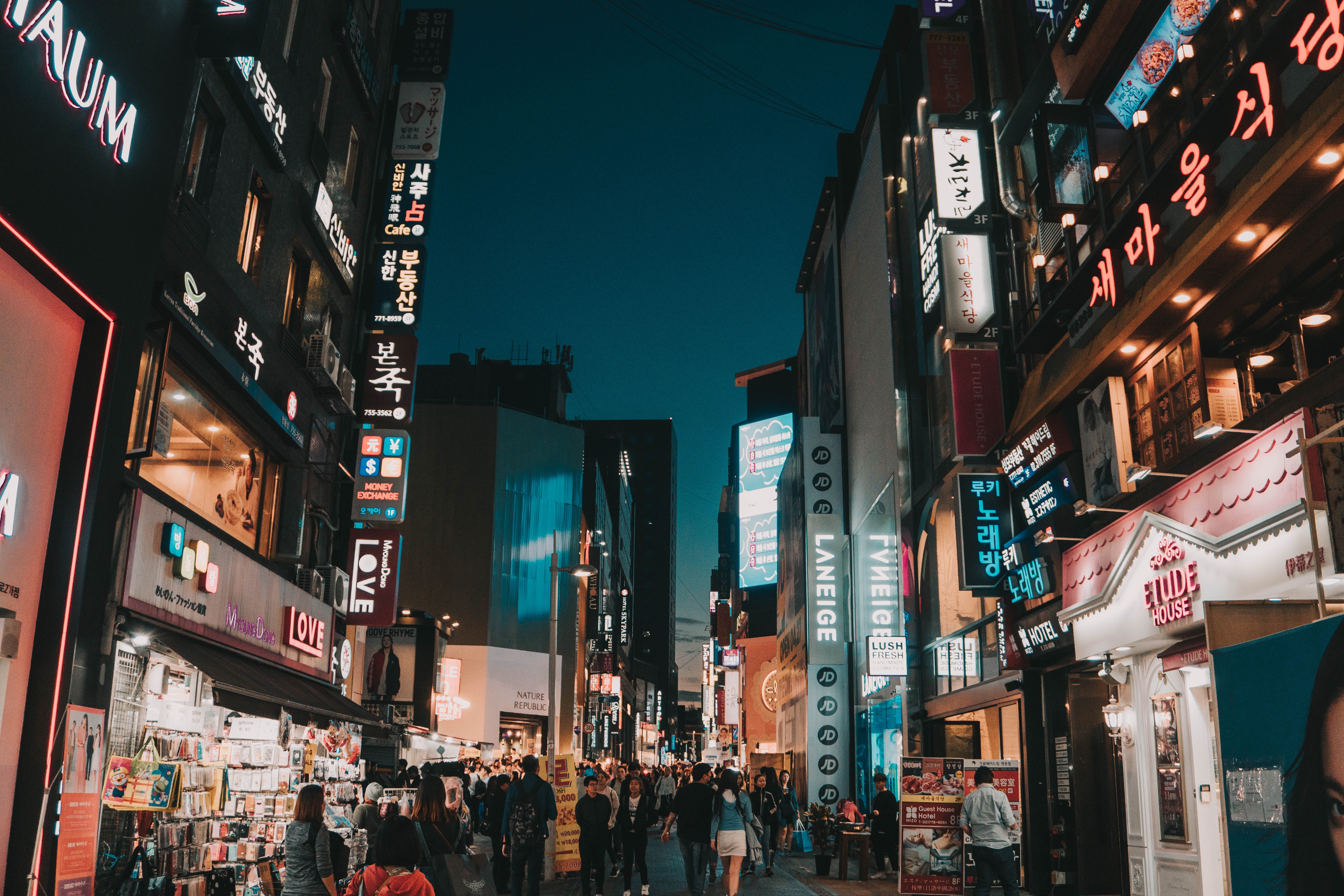
(Shawn Ang)
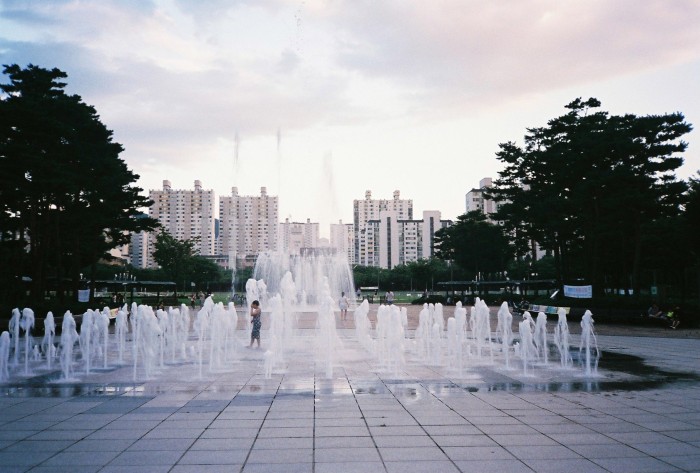
My neighborhood in Anyang (Jenna Kunze)
1.It is crazy safe. CCTV’s (read: surveillance cameras) are everywhere (I mean, even in my classroom, where parents could watch me conduct lessons in real time), which helps to dissuade already honest-minded people. I’ve dropped my wallet in the street and returned to find it there 20 minutes later; I frequently left my computer in cafes when I went to the bathroom; I’ve traveled home alone at all hours of the night. I always re-tell this story that I’m five people removed from, because it really drives home this point. A woman (friend of a friend of a friend) left her purse on a subway and reported it to local police. To find it, they input her name, which is connected to her local ID, in their CCTV surveillance footage, which brought up her movements throughout the day through facial recognition technology. Police were able to locate her bag by watching her movement from place to place (as I said, CCTV’s are everywhere) throughout the day. They found the purse, which, of course, wasn’t missing any money. Like I said, I can’t confirm this story to be true, but it sounds like Korea safety to me.
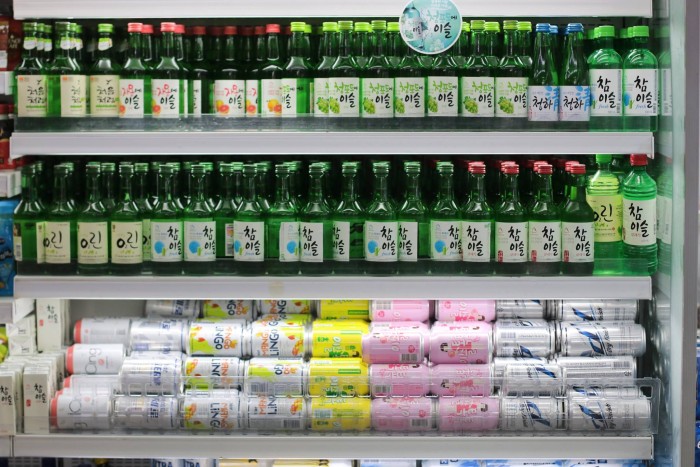
Soju, a fermented rice liquor, comes in a variety of flavors and contains about 20% alcohol by volume (Jenna Kunze)
2. The drinking culture. Koreans drink statistically more than Germans. Than Germans! This country and its people really boast a work hard play hard culture and, despite grueling office hours, they let loose. It is common for colleagues to ban together for drinks after work, it’s unheard of to eat most meals without a beer or so-maek, a doozy mix of a shot of soju with beer. Seoul is also the only city I’ve ever been to where you could go to a club Monday-Sunday and find heavy crowds any day of the week. You can burn out quickly, but even just socializing in Hongdae’s public park on any given night is a fun way to meet new friends, and sometimes even catch a live dance performance.
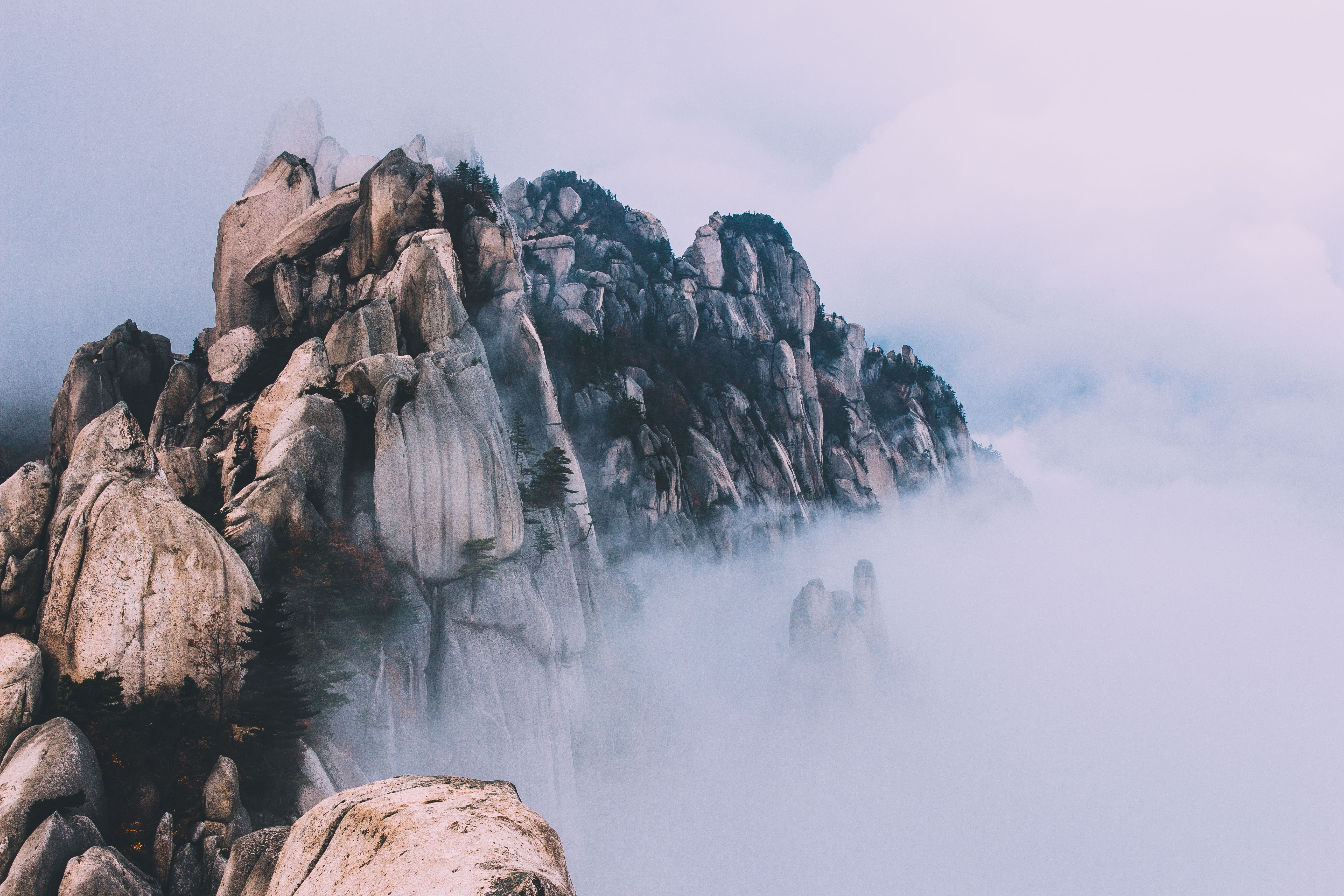
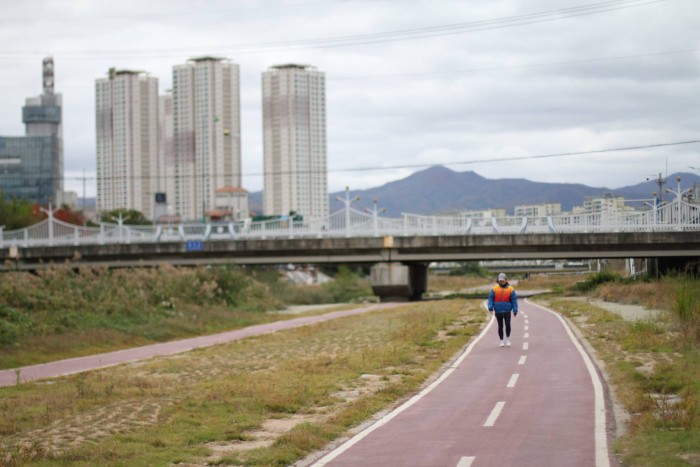
A biking and running trail in Chuncheon (Jenna Kunze)
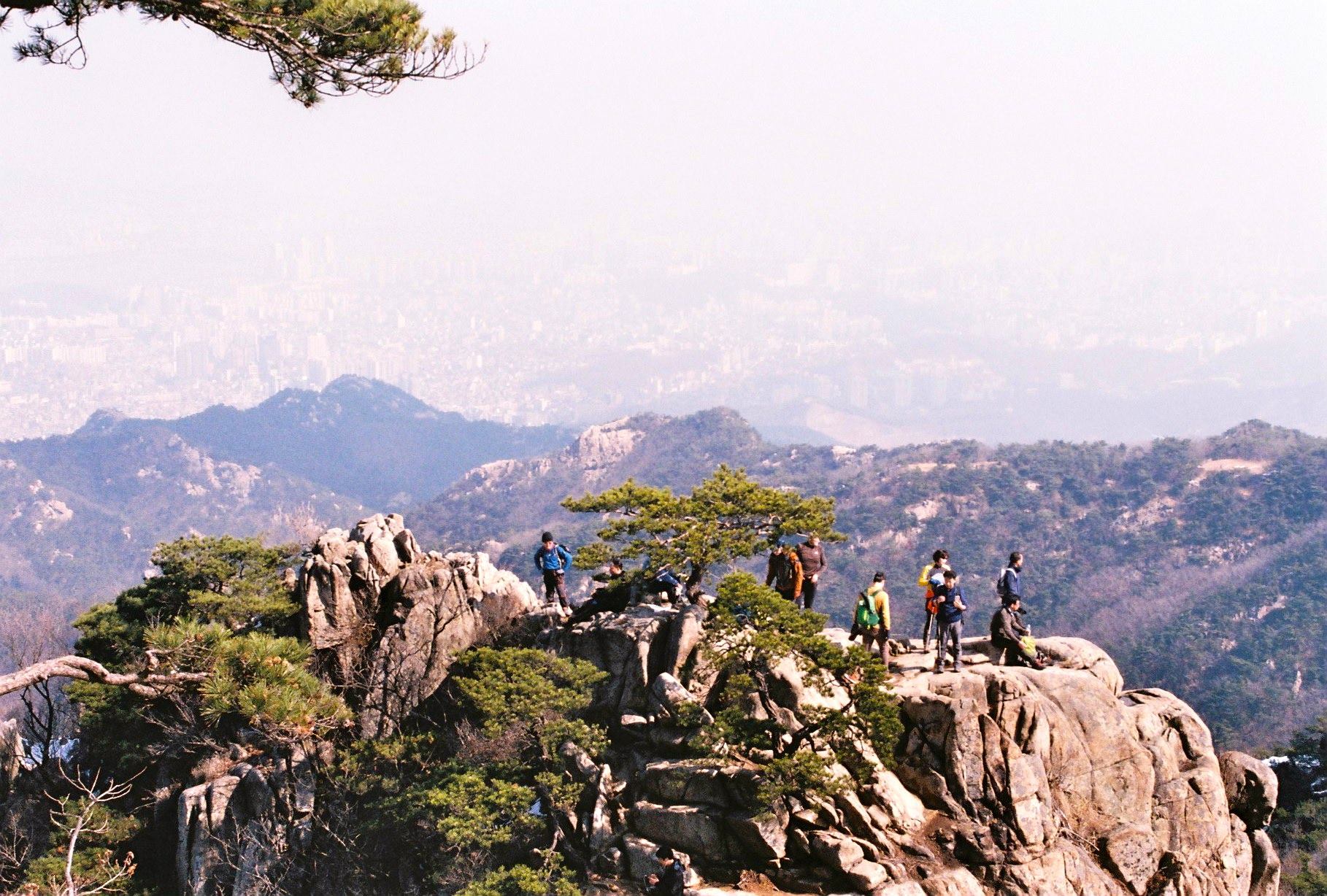
A peak at Gwanaksan mountain, overlooking downtown Seoul (Jenna Kunze)
3. The nature!… and the infrastructure for it. I love trees in cities and notice right away when urban planning includes lots of green space. When the cherry blossoms bloom in the spring, it’s particularly apparent how much this city incorporates nature. Korea has such varied climates on a small, easily-to-travel peninsula. You have islands in the south and east, tons of challenging mountains to hike and ski, beaches along the coast and in the southern hub of Busan. The entire peninsula of South Korea is connected from north to south by a 400 mile bike trail I traveled on in one direction over a holiday break. The fact that it even exists speaks to the demand from hikers, bikers, and runners in the country. There is even infrastructure on the mountain trails, where you can find ropes to scale up on, or rings to climb, at particularly steep parts.
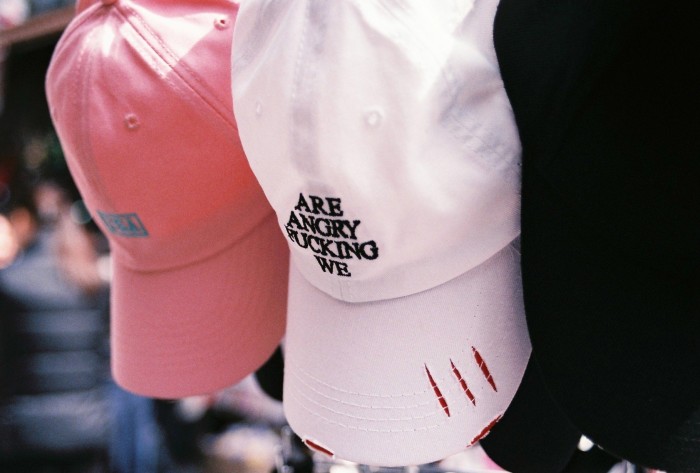
Nonsensical English clothing in Namdaemun market (Jenna Kunze)
4. Korea is a “mild Asia”. I say this as encouragement for first-timers. Asia can be intense with opposing food, climate, and language barriers for Westerners, but Korea is an excellent lead-in. Keep in mind, South Korea is a fairly developed national gaining traction as an influencer around the world. Major exports like Kia cars, Samsung technology, K-Pop music and K-drama Tv shows have built Korea into a mini superpower with tons of modern amenities. Just its subway system could be a stand-alone clause; it’s the best and most user-friendly, sprawling metro that puts NYC, London and Tokyo to shame. Especially in the bigger cities of Seoul, Busan, and Daegu, you have every modern amenity you need, plus enough shock value (animal cafes, live octopus delicacies, call buttons on restaurant tables) to make you feel like you’re charting new territory.
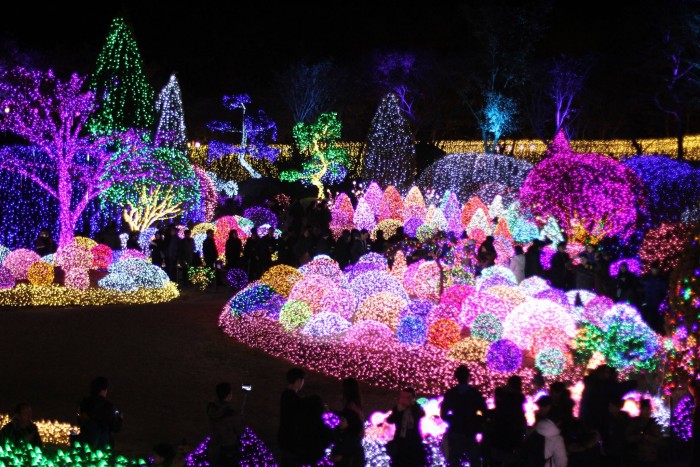
The Garden of Morning Calm Festival (Jenna Kunze)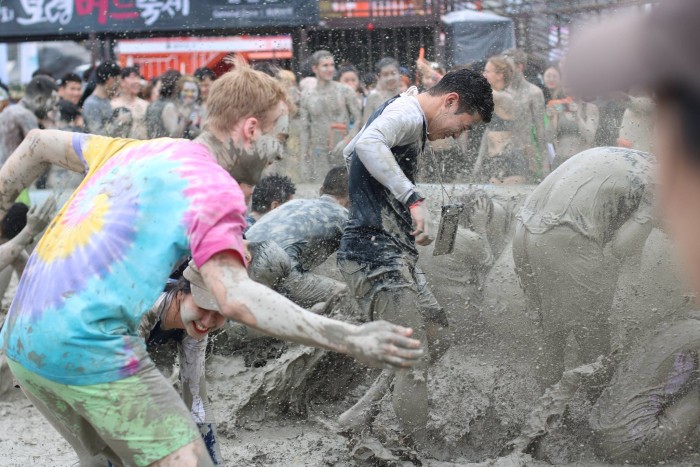
The Boryeong Mud Festival (Jenna Kunze)
5. The festivals. I’m really into them. I’ve never known a place to celebrate festivals like Korea does. Any excuse for a gimmicky photo drop with significant others, this country will draw a crowd. I went to upwards of five destination festivals in Korea- cherry blossoms and lotus lanterns and Holi colors and ice fishing. They’re fun, and a great way to promote tourism in different cities. The most impressive being Boryeong Mud Festival, where attendees bathe in giant vats of mud along the beach in Boryeong. It’s said that the mud has medicinal values, and it draws crowds from all over Korea and the world to fight in mud pits, race down mud slides, and slip through obstacle courses.
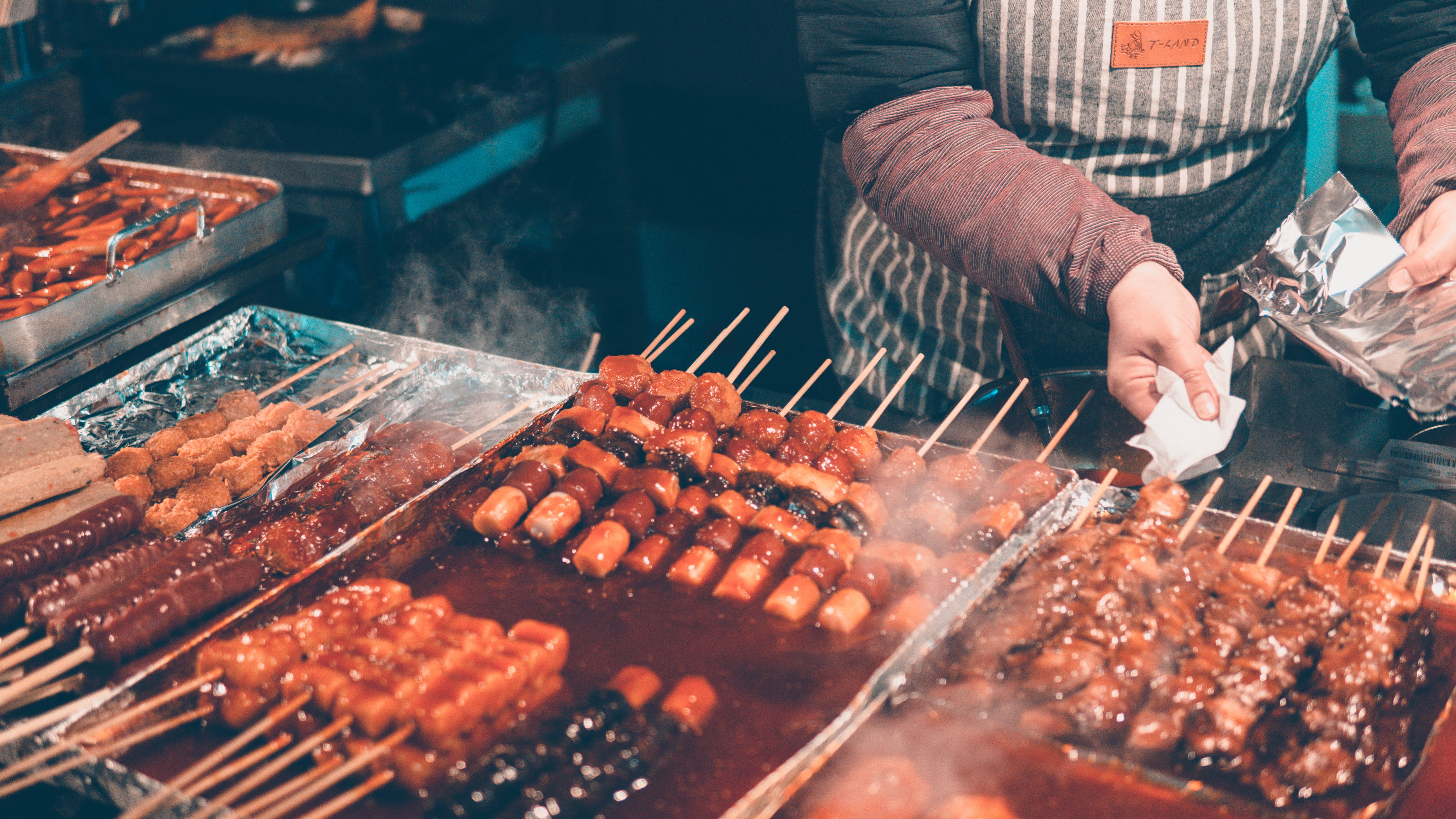
(Ian Valerio)
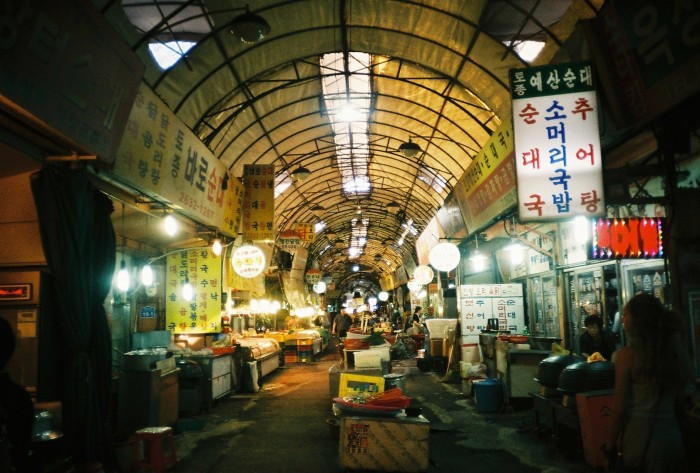
An open air spice market in Seoul (Jenna Kunze)
6. The food. “Delicious” was one of the first multi-syllable words I mastered in Korean for its usefulness in restaurants banter. Korean food is a hearty breed of Japanese and Chinese influence, with its own very unique signature. I loved spicy food before I moved to Asia, but my tolerance has increased tenfold by eating all the chili paste infused broths and kimchi. Typical Korean fare at a kimbab changu will cost about $7 for a steaming bibimbap, or even less for dumplings or kimbap rolls. Korean BBQ is also in a league of its own in terms of restaurant experience, from cooking the meat yourself on grills at the table to the bottomless sides and fixin’s the food comes with. Re: #4: For a Saturday lunch dish, there’s the Hangover Stew that contains beef broth, veggies, and spam.
7. Korean bathhouses. One of the reasons I’m so smitten with New York City is for its iconic ability to boast food from any nation of the world, at any hour of the night. With Korea, I feel that way about their saunas. Anytime! Anywhere! Jimjilbangs are public bathhouses and saunas present in even the smallest of towns in Korea, where visitors pay around $10 and can stay as long as they want. The baths are nude and separated by gender, but in the steam rooms you wear fun little pajamas they give you when you enter, and it’s coed.
The first time I took my clothes of and entered a pool of water with bemused Korean women, I was mortified. One of the biggest adjustments to me in Korea was nakedness and its acceptance within the same gender. I couldn’t believe that my culture, associated with such freedom and openness, does not readily accept group nakedness while in South Korea, a nation known as a ‘closed’ culture, does. I’ve seen three generations of women in a family all bathing together, the youngest helping her grandmother scrub a hard to reach spot on her back. I think that’s cool.
I liked Korea. Loved it, even. It was simulating and immersive and quite the learning experience. Now, I pitch South Korea to everyone—both as a place to live and travel. I have a laundry list saved in my phone of my best recommendations, a scientific balance of what and where to see/do/eat/hike/party while in the Republic of Korea. Comment below if you’re looking for more.

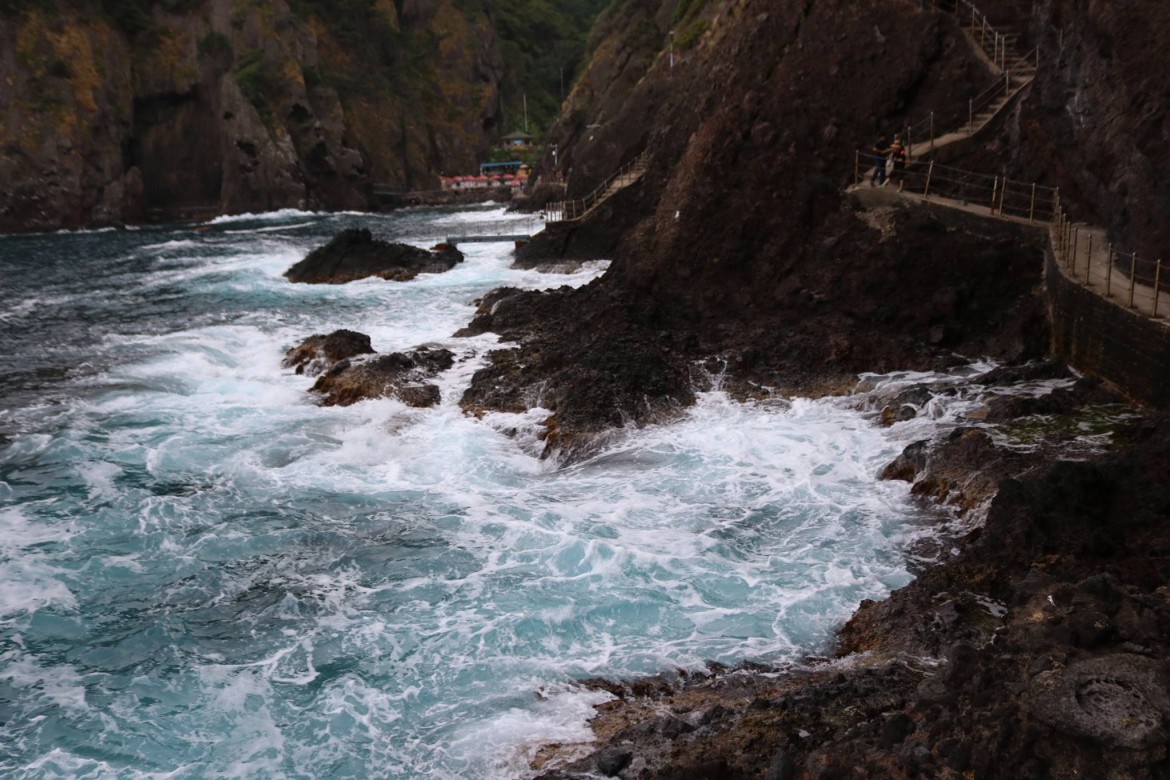





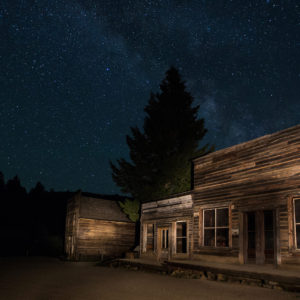
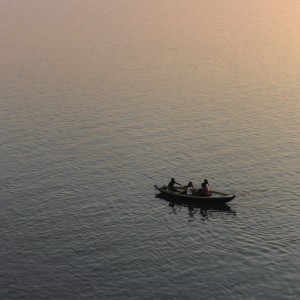
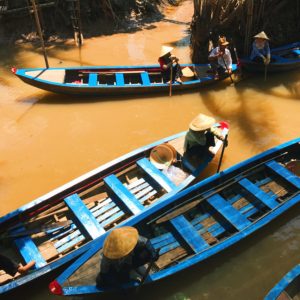
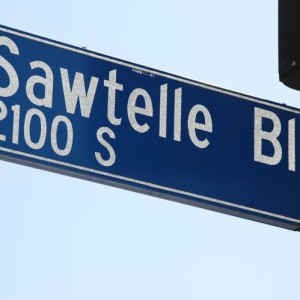
Leave a reply